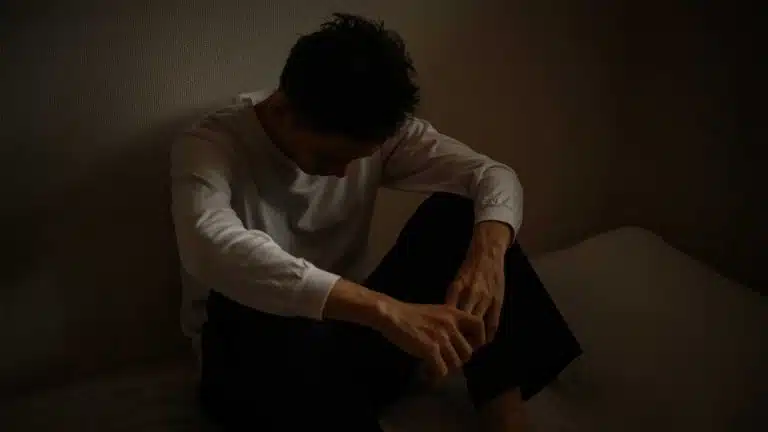Celexa Withdrawal | Symptoms, Timeline, & Detox Options

Celexa, the brand name for citalopram, is a selective serotonin reuptake inhibitor (SSRI) antidepressant drug. SSRIs and other types of antidepressants influence brain chemistry to improve symptoms of depression and other mental health conditions.
If you abruptly stop Celexa, it can cause an imbalance in brain chemicals and withdrawal symptoms.
On average, Celexa withdrawal begins within a few days of discontinuing the medication. Symptoms vary in severity and duration but likely resolve within a couple of weeks.
Celexa Withdrawal
As an SSRI, Celexa targets serotonin, one of the neurotransmitters (brain chemicals) associated with major depressive disorder and anxiety disorders. SSRIs may also be used in the treatment of eating disorders and panic disorders.
SSRI medications also include:
- Zoloft (sertraline)
- Prozac (fluoxetine)
- Lexapro (escitalopram)
- Luvox (fluvoxamine)
Antidepressant Discontinuation Syndrome
There are several reasons why someone might stop their antidepressant medication. For some people, the side effects may be severe or affect their well-being.
In other cases, people may start to feel improvements in mood, emotion, and behavior after a couple of months of treatment. Feeling better may cause some people to feel they don’t need the medication.
However, the medication is balancing chemicals in the brain to reduce symptoms. Stopping the medication can disrupt brain chemistry and cause an adverse reaction known as antidepressant discontinuation syndrome.
Withdrawal Symptoms
Symptoms of antidepressant withdrawal may include:
- electric shock sensations (“brain zaps”)
- flu-like symptoms
- insomnia
- vivid dreams
- vertigo
- mood swings
- anxiety
- irritability
- confusion
- drowsiness
- appetite changes
Rebound Syndrome
Rebound syndrome is a condition that can occur with some medications, including SSRIs. The rebound effect is when you stop taking medication and depression symptoms reappear, usually worse than before treatment began.
Rebound symptoms are usually temporary and resolve quickly. If symptoms persist for a few weeks or longer, it may be the return of a depressive episode and not withdrawal. In addition, SSRI withdrawal usually involves physical symptoms (flu-like symptoms and brain zaps).
If you experience the return of suicidal thoughts, please seek medical attention immediately. To avoid withdrawal or a depression relapse, it is best to speak with your prescribing doctor before stopping the medication.
Celexa Withdrawal Timeline
Serotonin is a neurotransmitter that plays a role in mood and emotion. SSRIs increase levels of serotonin in the brain, which may relieve depression symptoms in some people. Your brain eventually adapts to the new levels of serotonin.
If you stop the medication too quickly, it can drastically change serotonin levels. The abrupt change in brain chemistry can lead to worsening depression symptoms, insomnia, and electric shock sensations in the brain.
Celexa has a relatively short half-life of about 35 hours, according to the Food and Drug Administration (FDA). That means in about 1.5 days, the amount of the medication in the bloodstream reduces by half.
As the amount of Celexa reduces in your system, you may begin to feel the onset of discontinuation symptoms.
Although withdrawal will affect everyone differently, symptoms usually follow this timeline:
- days 3-4, onset of withdrawal symptoms
- days 4-8, symptoms usually peak
- weeks 2-6, symptoms usually begin to fade
Typically, the most severe symptoms usually resolve within a couple weeks of stopping the medication. In rare cases, discontinuation symptoms may persist several months to a year.
Antidepressant Detox Options
SSRI medications are not addictive, which means they do not cause uncontrollable cravings or a desire to take higher doses. However, suddenly stopping or reducing the dose too quickly can cause withdrawal symptoms.
If you want to discontinue your antidepressants, it is important to discuss your options with your healthcare provider. Your doctor can inform you of the risks associated with stopping antidepressants, including withdrawal and rebound depression.
Tapering
If you decide you no longer want to take Celexa, your doctor will likely suggest tapering the medication. A taper involves gradually decreasing the dose until it is fully discontinued.
Depending on your dose, tapering usually takes at least a month to complete. During this process, your doctor will monitor you for discontinuation symptoms and the return of depression symptoms.
Celexa tablets come in the following strengths: 10mg, 20mg, and 40mg. Those on higher doses will likely decrease by 10mg every two weeks, as long as depression symptoms don’t worsen.
Detoxing off antidepressants will be different for everyone and depends on your dose, how long you’ve been taking it, and your medical history. In general, the more gradually you reduce your medication, the lower the risk of withdrawal symptoms.
If you or a loved one suffers from depression, please contact us today to learn about treatment options.
Written by Ark Behavioral Health Editorial Team
©2024 Ark National Holdings, LLC. | All Rights Reserved.
This page does not provide medical advice.
Canadian Medical Association Journal - Antidepressant Discontinuation Syndrome
Deutsches Arzteblatt International - Antidepressant Withdrawal and Rebound Phenomena
Food And Drug Administration (FDA) - Celexa (Citalopram Hydrobromide)
Harvard Health Publishing - Going Off Antidepressants
National Alliance On Mental Illness (NAMI) - Citalopram (Celexa)

Questions About Treatment?
Ark Behavioral Health offers 100% confidential substance abuse assessment and treatment placement tailored to your individual needs. Achieve long-term recovery.
100% confidential. We respect your privacy.
Prefer Texting?
Our friendly support team is here to chat 24/7. Opt out any time.







 Learn More
Learn More








